- Home
- neetha Napew
In th Balance Page 2
In th Balance Read online
Page 2
"I put in half a season for Birmingham in 1933," Yeager said. "The Southern Association's Class A-1 ball. Broke my ankle the second game of a Fourth of July doubleheader and I was out for the rest of the year." He knew he'd lost a step, maybe a step and a half, when he came back the next season. He also knew any real chance he'd had of making the majors had snapped along with the bone in his ankle.
"You're ahead of me after all. I put in three weeks at Albany— the Eastern League's Class A— but when I made three errors in one game they shipped me right on out of there. Bastards." Fiore spoke the word without much heat. If you screwed up, another ballplayer was always ready to grab your place. Anybody who didn't understand that had no business playing the game for money.
Yeager stopped at a newsstand around the corner from the hotel and bought a magazine. "Something to look at on the train back to Decatur," he said, handing the fellow at the stand a quarter. The year before, he would have got a nickel back. Now he didn't. When you got a Three-l league salary, every nickel counted. He didn't think going from digest size up to bedsheet was worth the extra five cents.
Fiore's lip curled at his choice of reading matter. "How can you stand that Buck Rogers stuff?"
"I like it." Yeager hung onto the new Astounding. He added, "Ten years ago, who would have believed the blitz or aircraft carriers or tanks? They were talking about all that' kind of stuff in here then."
"Yeah, well, I wish they'd been wrong," Fiore said, to which Yeager had no good reply.
They came into the hotel lobby a couple of minutes later. The desk clerk had a radio on to catch the afternoon news. H.V. Kaltenborn's rich, authoritative voice told of fighting in North Africa near Gazala, of fighting in Russia south of Kharkov, of an American landing on the island of Espfritu Santo in the New Hebrides.
Yeager gathered Espfritu Santo lay somewhere in the South Pacific. He had no idea just where. He couldn't have found Gazala or Kharcov without a big atlas and patience, either. The war had a way of
throwing up name after name he'd never learned about in school.
Kaltenborn went on, "Daring Czech patriots have struck at the Reichsprotektor for occupied Bohemia, Nazi butcher Reinhard Heydrich, in Prague. They say they have slain him. German radio blames the assault on the 'treacherous British,' and maintains Heydrich still lives. Time will tell."
"Nice to hear we're movin' forward somewhere, even if I can't pronounce the name of the place," Yeager said.
"Means 'Holy Spirit,'" Fiore told him. "Must be Spanish, but it sounds enough like Italian for me to understand it."
"Okay," Yeager said, glad to be enlightened. He walked over to the stairs, Fiore trailing after him. The elevator man sneered at them. That always made Yeager feel like a
cheapskate, but he was too used to the feeling to let it worry him much. For that matter, the hotel was cheap, too, with a single bathroom down at the end of the hail on each floor.
He used the room key, tossed his duffel onto the bed, picked up suitcases and tossed them beside the duffel, started transferring clothes from the duffel and the closet to the bags as automatically as he hit the cutoff man on a throw from the outfield. If he'd thought about what he was doing, he would have taken twice as long for a worse job. But after half a lifetime checking out of small-town hotels, where was the need for thought?
On the other bed, Fiore was packing with the same effortless skill. They finished within a few seconds of each other, closed their bags, and hauled them downstairs. They were the first ones back to the lobby; for most of their teammates, packing didn't come so easy yet.
"Another road trip done," Yeager said. "Wonder how many miles on the train I've put in over the years."
"I dunno," Fiore answered. "But if I found a secondhand car with that many miles on it, I sure as hell wouldn't buy it."
"You go to the devil." But Yeager had to laugh. A secondhand car with that many miles on it probably wouldn't even run.
The rest of the Commodores straggled down by ones and twos. A few came over to shoot the breeze, but most formed their own, bigger group; the bonds of youth were stronger than those of the team. That saddened Yeager, but he understood it Back when he started playing pro ball in the long-dead days of 1925, he hadn't dared go up to the veterans either. The war only made things worse by taking away just about everybody between him and Fiore on the one hand and the kids on the other.
The manager, Pete Daniels (universally called "Mutt"), settled accounts with the desk clerk, then turned to his troops and declared, "Come on, boys, we got us a five o'clock train to catch:" His drawl was as thick and sticky as the Mississippi mud he'd grown up farming. He'd caught for part of two seasons with the Cardinals thirty years before, back in the days when they were always near the bottom of the pack, and then a long time in the minors.
Yeager wondered if Mutt still dreamed of a big-league manager's job. He'd never had the nerve to ask, but he doubted it: the war hadn't opened those slots. Most likely, Daniels was here because he didn't know anything better to do. It gave the two of them something in common.
"Well, let's go," Daniels said as soon as the clerk presented him with a receipt. He marched out onto the street, a parade of one. The Decatur Commodores tromped after him.
The year before, they would have piled into three or four taxis and gone to the station that way. But with gas and tires in short supply, taxis might as well have been swept off the street. The ballplayers waited on the corner for the crosstown bus, then plopped their nickels into the fare box as they climbed aboard.
The bus rolled west down Washington Avenue. At the intersections with north-south streets, Yeager could see water looking either way; Madison sat on a narrow neck of land between lakes Mendota and Monona. The bus went around Capitol Park before returning to Washington to get to the Illinois Central station. The capitol itself, a granite-domed white marble building in the shape of a Greek cross, dominated the low skyline of the city.
The bus stopped right in front of the station. Mutt Daniels waved train tickets. He'd kept track of things in a four-city swing through
Illinois, Iowa, and Wisconsin; now the Commodores would spend the next month back at Fan's Field, so he'd only have to worry about lineups for a while.
A colored porter wheeled up a baggage cart. He tipped his cap, grinned to show off a mouthful of gold teeth. "Heah you go, gentlemen," he said, his accent even richer than the manager's. Yeager let the fellow heave his bags onto the cart, tipped him a nickel. The gleaming grin got wider.
Sitting beside Yeager in the passenger car, Fiore said, "When my dad first got to New York from the old country, he took the train from there to Pittsburgh, where my uncle Joe already was. First smoke he's ever seen in his life is the steward, and he's got gold teeth just like the porter here. For months, my, dad thought all colored folks came that way."
Yeager laughed, then said, "Hell, I grew up
between Lincoln and Omaha, and I never saw anybody who wasn't white till I went off -to play ball. I've barnstormed against colored teams a couple of times, make some extra money during the winter. Some of those boys, if they were white, they could play anywhere."
"That's probably true," Fiore said. "But they ain't white." The train started to roll. Fiore twisted in his seat, trying to get comfortable. "I'm gonna sleep for a while, then head back to the dining car after the crowd thins out"
"If you aren't awake by eight, I'll give you a shot in the ribs," Yeager said. Fiore nodded with his eyes closed. He was good at sleeping on trains, better than Yeager, who got out his Astounding and started to read. The newest Heinlein serial had ended the month before, but stories by Asimov, Robert Moore Williams, del Rey, Hubbard, and Clement were plenty to keep him entertained. In minutes, he was millions of miles and
thousands of years from the mundane reality of an Illinois Central train rolling south over flat prairie fields between one Midwestern town and another.
A field kitchen rolled up to the tank company somewhere sout
h of Kharkov. After a couple of weeks of motoring this way and that, first to halt a Russian attack and then to trap the attackers, Major Heinrich Jager couldn't have said where he was more precisely than that without a call to Sixteenth Panzer's signal detachment.
The field kitchen didn't properly belong to the company. Like the other two units that made up the Second Panzer Regiment, it had a motorized kitchen that was supposed to stay with it, while this one was horse-drawn. Jager didn't care. He waved the driver to a halt, shouted to rout out his tank crews.
Some of the men kept on sleeping, in their Panzer Ills or under them. But the magic word "food" and the savory smell that wafted from the stew kettle got a good many up and moving. "What have you got for us?" Jager asked the driver and the cook.
"Boiled kasha, sir, with onions and meat," the cook answered.
Jager had never tasted buckwheat groats till the panzer division smashed its way into southern Russia the July before. They still weren't his top choice, or anywhere close to it, but they filled the belly nicely. He knew better than to ask about the meat— horse, donkey, maybe dog? He didn't want to know. Had it been beef or mutton, the cook would have bragged about it.
He dug out his mess tin, got in line. The cook ladled out a big dollop of steaming stew. He attacked it with gusto. His stomach
complained for a moment; it wasn't used to taking on a heavy load in the wee small hours. Then it decided it liked being full, and shut up.
Somewhere off in the distance, a machine gun started chattering, and a few seconds later another one. A frown twisted Jager's stubbly face as he ate. The Russians were supposed to have been kaput around these parts for most of a week. But then, nobody lived to grow old by counting Russians out too soon. The previous winter had proved that.
As if drawn by a magnet, Jager peered through the darkness toward the hulk of a T-34 that sat, turret all askew, perhaps fifty meters away. The killed tank was only a vague shape in the darkness, but even a glimpse could make fearful sweat start under his arms.
"If only we had panzers like that," he murmured. He stuck his spoon into the stew
still on his tin plate, stroked the black ribbon of his wound badge. Thanks to a T-34, he would have a furrow in his calf till the day he died. The rest of the crew of the Panzer III he'd been in at the time hadn't been so lucky; only one other man had bailed out, and he was back in Germany getting pieced together one operation at a time.
Simply measured tank against tank, a Panzer III, even, one with the new, long 50mm gun, had no business taking on a T-34. The Russian tank boasted a cannon half again as big, thicker armor cleverly sloped to deflect shells, and an engine that was not only more powerful than a Panzer Ills but a diesel to boot, so it wouldn't go up in flames the way the German machine's petrol-powered Maybach so often did.
"It's not so bad as all that, sir." The cheerful voice at his shoulder belonged to Captain Ernst Riecke, his second-in-command.
"Ha. You heard me muttering to myself, did you?" Jager said.
"Yes, sir. You ask me, it's the same in tanks as it is in screwing, sir."
Jager raised an eyebrow. "This I have to hear."
"Well, in both cases knowing what to do with what you've got counts for more than how big it is."
The company commander snorted. Still, no doubt Riecke had a point. Even after almost a year of painful instruction at the hands of the Germans, the Bolsheviks were still in. the habit of committing their armor by dribs and drabs instead of massing it for maximum effect. That was how the dead T-34 had come to grief: rumbling along without support, it had been set upon and destroyed by three Panzer Ills.
Still... "Think how fine it would be to have a big one and know what to do with it."
"It is enjoyable, sir," Riecke said complacently. "Or were you talking about panzers again?"
"You're incorrigible," Jager said, and then wondered if it was just that the captain was still on the sunny side of thirty. Promotion came quickly on the Russian front. Good officers led their troops forward rather than sending up orders from the rear. That meant good officers died in larger numbers, a twisted sort of natural selection that worried Jager.
He felt every one of his own forty-three years. He'd fought in the trenches in France in 1918, in the last push toward Paris and then in the grinding retreat to the Rhine. He'd first seen tanks then, the clumsy monsters the British used, and knew at once that if he ever went to
war again, he wanted them on his Side for a change. But they were forbidden to the postwar Reichswehr. As soon as Hitler took the gloves off and started rearming Germany, Jager went straight into armor.
He took another couple of mouthfuls of stew, then asked, "How many panzers do we have up and running?"
"Eleven," Riecke answered. "Maybe we'll be able to get another one going in the morning, if we scrounge around for some fuel line."
"Not bad," Jager said, as much to console himself as to reassure Riecke. On paper, his company should have had twenty-two Panzer Ills. In fact, it had had nineteen when the Russians launched their attack. On the eastern front, getting that close to paper strength was no small accomplishment.
"The Reds can't be in good shape, either,"
Riecke said. His voice turned worried, just for a moment: "Can they?"
"We've bagged enough of them, the last three weeks," Jager said. That was true enough; a couple of hundred thousand Russians had trudged off into captivity when the Germans pinched off the opening through which they'd poured. The enemy threw away more than a thousand tanks and two thousand artillery pieces. Bolshevik losses the summer before had been on an even more colossal scale.
But before he crossed from Romania into Russia, he'd never imagined how immense the country was; how the plains seemed to stretch on and on forever; how thin a division, a corps, an army, could spread just to hold a front, let alone advance. And from those limitless plains sprang seemingly limitless streams of men and tanks. And they all fought, ferociously if without much skill. Jager knew too well the Wehrmacht was anything
but limitless. If every German soldier slew two Red Army men, if every panzer knocked out two T-34s or KVs, the Russians had a net gain.
Riecke lit a cigarette. The flare of the match briefly showed the dirt ground into fatigue lines he'd not had a month before. Yet somehow he still looked boyish. Jager envied him that; at the rate he himself was going gray, he'd look like a grandfather any day now.
The captain passed him the pack. He took a cigarette, leaned closer to light it from Riecke's. "Thanks," he said, shielding the glowing coal with one hand: no point giving a sniper a free target. Riecke also hid his smoke.
After they'd crushed out the cigarettes under their boot heels, Riecke said suddenly, "Are we, going to get new models anytime soon, sir? What does your brother say?"
"Nothing he shouldn't, which means I don't know for certain," Jager answered. His brother Johann worked as an engineer for Henschel. His letters were always censored with special zeal, lest they fall into enemy hands on the long road between Germany and somewhere south of Kharkov. But brothers had ways with words that censors could not follow. After a moment, Jager added, "It might be possible, though I thought size didn't concern you...?"
"Oh, I'll carry on with what we have," the younger man said breezily. Not that there's any choice in the matter, Jager thought. Riecke' went on, "Still, as you say, it would be nice to be better and bigger at the same time."
"So it would." Jager splashed a little water onto his mess tin from his water bottle, pulled out some fresh spring grass to wipe it more or less clean. Then he yawned. "I'm going to try to sleep till sunup. Don't be afraid to wake me
if there's any sign of trouble." He'd given Riecke that order at least a hundred times. As he always did, the captain nodded.
The drone of the four Merlins made every filling in Flight Lieutenant George Bagnall's head feel as if it were shaking loose from its tooth. The Lancaster jounced in the air as 88mm flak burst all around it, filli
ng the night with puffs of smoke that absurdly reminded the flight engineer of dumplings.
Searchlights stabbed up from the ground, seeking to impale a bomber like a bug on a collector's pin. The Lancaster's belly was a flat matte black, but not black enough to make it safe if one of those skewers of light happened to catch it. Fortunately, Bagnall was too busy monitoring engine temperature and revolutions, fuel consumption, oil pressure, hydraulic lines, and all the other complex
systems that had to work if the Lancaster was to keep flying, to be as frightened as he would have been as a mere passenger.
But not even the most mechanically attentive man could have stared at his dials and meters to the exclusion of the spectacle outside the thick Perspex window. Even as Bagnall watched, more flames started in Cologne, some the almost blue-white glare of incendiaries, others spreading red blisters of ordinary fire.

 Zero City
Zero City Freedom Omnibus
Freedom Omnibus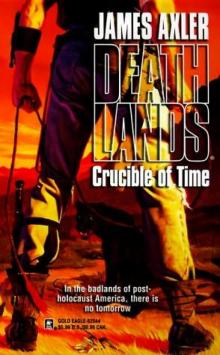 ACrucible of Time
ACrucible of Time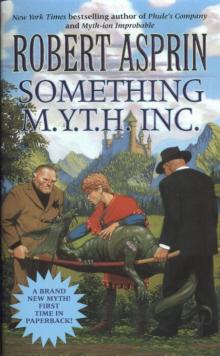 Something MYTH Inc
Something MYTH Inc Forbidden Land
Forbidden Land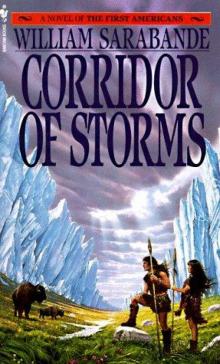 Corridor of Storms
Corridor of Storms The Peytabee Omnibus
The Peytabee Omnibus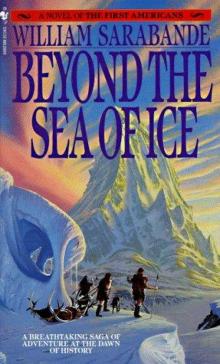 Beyond the Sea of Ice
Beyond the Sea of Ice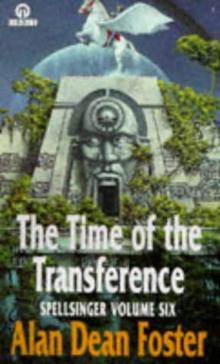 The Time Of The Transferance
The Time Of The Transferance EarthBlood
EarthBlood The Lexal Affair
The Lexal Affair The Web
The Web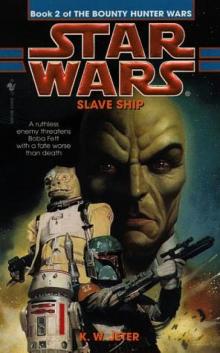 Slave Ship
Slave Ship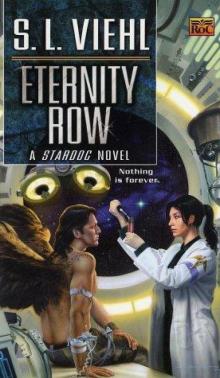 Eternity Row
Eternity Row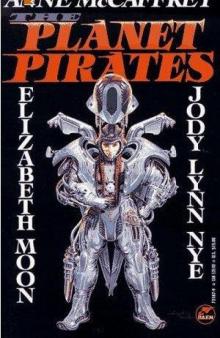 Planet Pirates Omnibus
Planet Pirates Omnibus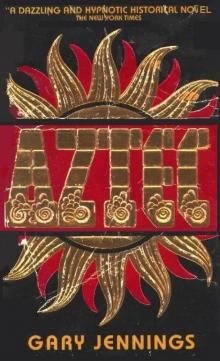 Aztec
Aztec The Awakening
The Awakening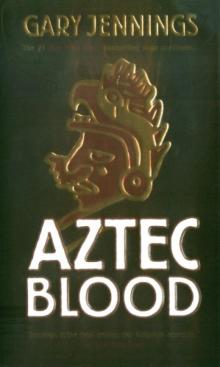 Aztec Blood
Aztec Blood The Mystery of Ireta Omnibus
The Mystery of Ireta Omnibus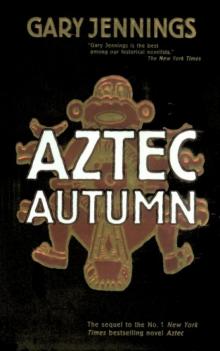 Aztec Autumn
Aztec Autumn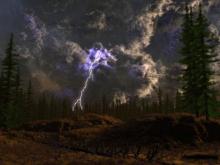 The Savage Horde
The Savage Horde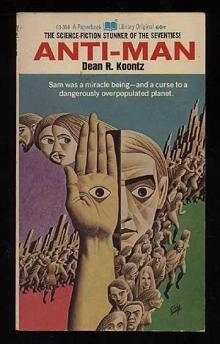 Anti - Man
Anti - Man Deep Trek
Deep Trek Starfall
Starfall The Paths Of The Perambulator
The Paths Of The Perambulator Fool's Fate
Fool's Fate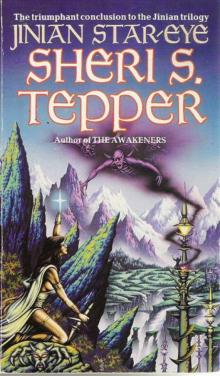 Jinian Stareye
Jinian Stareye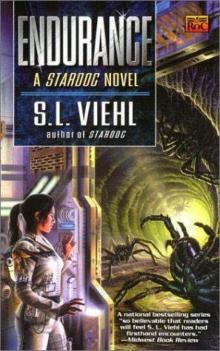 Endurance
Endurance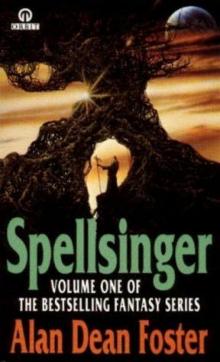 Spellsinger
Spellsinger Hybrids
Hybrids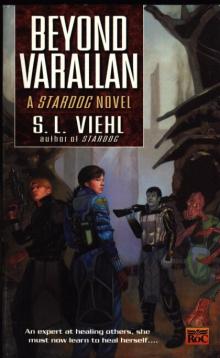 Beyond Varallan
Beyond Varallan Doona Trilogy Omnibus
Doona Trilogy Omnibus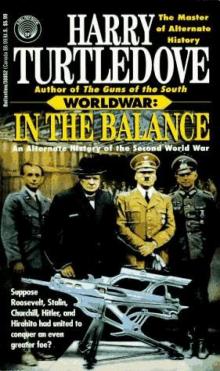 In th Balance
In th Balance Planerbound
Planerbound The Nightmare begins
The Nightmare begins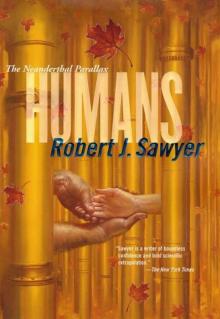 Humans
Humans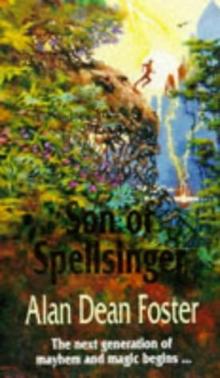 Son Of Spellsinger
Son Of Spellsinger